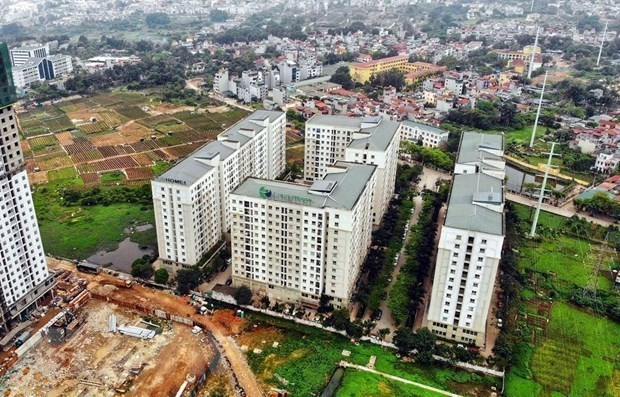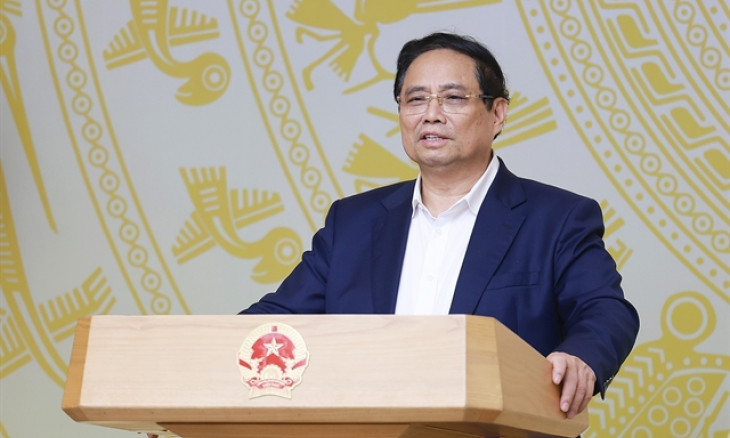Central bank not tighten real estate credit: Deputy Governor
The State Bank of Vietnam (SBV) has never issued any documents or statements ordering credit for real estate be tightened, Deputy Governor Dao Minh Tu said on February 8.
Real estate is a sector contributing considerably to the economy, and this market is linked with other sectors, he told a meeting on real estate credit.
He noted that recently, the property market has recorded supply - demand imbalance as seen in the excessive supply in the high-end segment, shortages of housing for middle- and low-income earners, “land fever” in certain places, and wrongdoings by some corporate bond issuers related to real estate.
However, there is no such thing that banks are tightening credit for this field, the official affirmed.
Giving evidence of his statement, Tu said real estate posted the highest credit growth, about 24.27% from the end of 2021 to 2.58 quadrillion VND (109.3 billion USD) at the end of 2022. It accounted for the majority of total credit for all sectors, 21.2% – a five-year high.
Credit institutions are still providing loans for the real estate sector in line with regulations, the Deputy Governor went on, adding that there are no specific rules on “credit room” for any sector or line of business, but only common credit limits set to serve inflation control.
At the meeting, representatives of some enterprises pointed out that most obstacles facing the property market are related to legal procedures and the source of capital from bonds.
The SBV said to tackle difficulties in credit access, it will continue a solid, proactive, flexible, and effective monetary policy that is harmoniously coordinated with the fiscal policy and other macro-economic ones to help stabilise the macro-economy, support economic growth, and facilitate sectors.
It will order credit institutions to guarantee safe and effective credit growth and also sufficient capital for the economy, including the real estate sector, with a focus on feasible projects and borrowing plans meeting real housing demand.
Institutions will not ease lending conditions to minimise non-performing loans, control risks in the granting of credit for the high-end segment that has excessive supply, and for certain groups of clients to ensure safety of banking activities.
The central bank also underlined the need to work with ministries and sectors to overhaul legal regulations to support the sustainable development of the property market and keep risks facing credit institutions under control.






